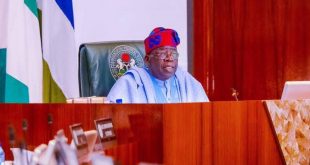
Speaker Yakubu Dogara has chided the Executive led by President Muhammadu Buhari for constantly blaming the Legislature for delays in the passage of the country’s annual budgets.
In his opening address at the national budget hearing organised jointly by the Committees on Appropriations of the Senate and the House of Representatives, Dogara drew the attention of the Executive to late presentation its part.
He also lamented poor implementation of previous budgets and he stressed that the Parliament won’t “rubber stamp” budgets merely for the sake of early passage.
According to him, “the budget is the most important law that is passed yearly, consequently, no parliament anywhere in the world rushes it. Let me re-emphasize that this Parliament can never be a rubber stamp and neither are we prepared to surrender our constitutionally assigned rights of checks on the Executive. It is unfortunate, however, that many commentators always ignorantly accuse the National Assembly of delaying the Appropriations Bill as if we are meant to urgently rubber stamp whatever budget estimates that is submitted to us by the Executive. If we fail to scrutinize the budget proposals, it will not only amount to abdication of our constitutional responsibilities as legislators but a betrayal of the mandate of our constituents.
“Let me also add that it is very unfair for the Executive to consistently and repeatedly blame the National Assembly of delaying passage of the budget while failing to address the issue of late budget submission on its part. The Fiscal Responsibility Act, 2007, provides that the Appropriations Bill be submitted not later than September of the preceding year which will give the Parliament ample time to process the document and pass it in good time. Unfortunately, the 2019 Appropriations Bill was submitted on December 19, 2018, just 12 days to the end of the year and the earliest time an Appropriation Bill has ever been presented to the National Assembly in this dispensation was on November 7, 2017.”
Dogara however noted that in a bid to address the issue the National Assembly passed a Constitutional Amendment Bill which sought to compel the Executive to submit the Budget proposals to the National Assembly not later than 90 days to the end of the fiscal year and also to limit expenditure that can be incurred in the absence of the Appropriations Act from six (6) months to three (3) months.
Dogara added that: “In yet another effort to improve institutional capacity of the Parliament to process and pass budget expeditiously, the National Assembly Budget and Research Office (NABRO) establishment Bill was passed into law. It was closely modeled after the American Congressional Budget Office (CBO). Unfortunately, I regret to inform this gathering that these laudable efforts and initiatives were thwarted when the President withheld his assent to these two important Bills.
“Consequently, efforts to enact a Budget Process Bill which will spell out timelines for every activity concerning the budget is stalled because it would be ineffective to enact a law that will run contrary to Section 81(1) of the Constitution which allows the President to submit the Budget estimates, ‘at any time’ before the end of the financial year.”
The Speaker concluded by assuring that the National Assembly will endeavour to speedily pass the budget as he called on the heads of Ministries, Departments and Agencies (MDAs) to appear before relevant committees and urged the Executive to ‘to muster the will to honestly and diligently implement’ the budget when passed.
In his comments, the Chairman Senate Committee on Appropriation, Senator Danjuma Goje (APC, Gombe) observed that the public hearing was crucial to inclusive and active participation in the process of passage of the 2019 budget.
 DailyrecordNg …Nigeria's hottest news blog
DailyrecordNg …Nigeria's hottest news blog







